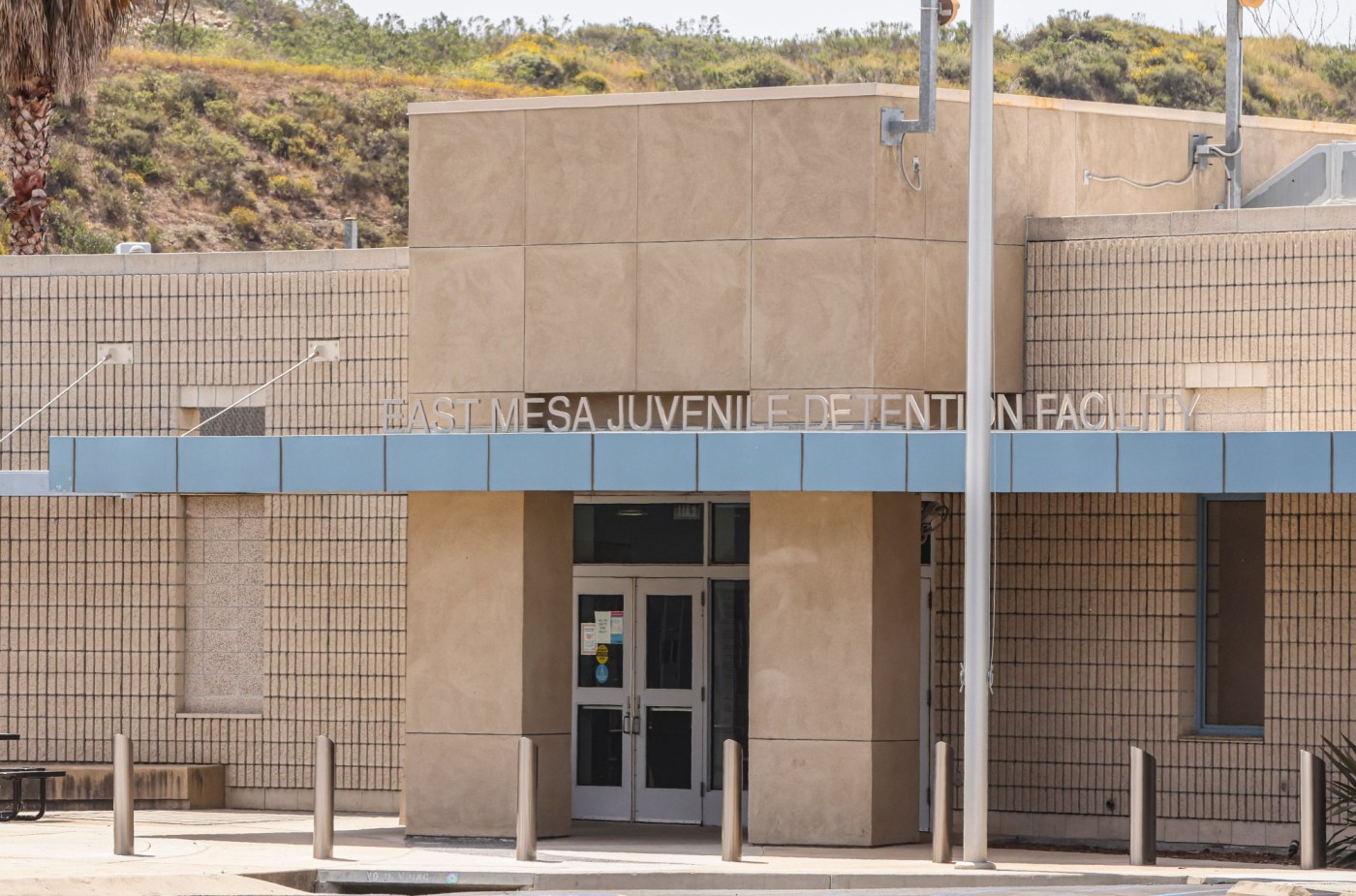For months, the review board that investigates alleged misconduct by county law enforcement officers has been unable to investigate cases of youth who are seriously injured in county custody.
Last week, the Citizens’ Law Enforcement Review Board, or CLERB, closed six of these cases. All of the juveniles, none of whom are identified by name, have since turned 18 and have had their records sealed.
California law allows juvenile criminal records to be sealed by a judge when a person turns 18. The goal is to provide a clean slate when they later apply for jobs, loans or housing.
Related Articles
Intellectually disabled teen shot by Idaho police dies after being removed from life support
Berkeley council to consider police oversight, accountability reforms
Suspect accused of wielding gun at East Bay cops charged with attempted murder
Mexico demands thorough investigation into fatal California police shooting of teen
San Mateo County supervisors can initiate sheriff’s removal following charter amendment
But advocates for justice-involved youth question whether the confidentiality laws created to protect them should also hamstring oversight investigations.
“Too often, the confidentiality laws, the only time I ever hear them invoked by probation departments is when it’s being used to protect probation departments from accusations,” said Dan Macallair, executive director of the Center on Juvenile and Criminal Justice.
In January 2021, the San Diego County Board of Supervisors gave CLERB the authority to investigate anytime a person in custody sustains a great bodily injury. Prior to that, a complaint was required.
The Sheriff’s Office complied with the new rule immediately, said Paul Parker, CLERB’s executive officer at the time. But Parker, who stepped down in March 2024, told The San Diego Union-Tribune he struggled to get reports from the Probation Department.
This past October, the department provided CLERB with basic information about 28 great bodily injury cases stretching back to 2021 — the date of the incident, location and a brief description of the injury the youth sustained.
Of the 28 cases, six concern injuries that occurred at the county’s Youth Transition Center in Kearny Mesa and 22 at the East Mesa Juvenile Detention Facility in Otay Mesa.
The Probation Department defined “great bodily injury” as “a significant or substantial physical injury including, but not limited to, a bodily injury that involves a substantial risk of death, unconsciousness, protracted and obvious disfigurement, or protracted loss or impairment of the function of a bodily member or organ,” spokesperson Chuck Westerheide told the Union-Tribune.
The six cases on CLERB’s April agenda included a chipped tooth, a broken tooth, a dislocated shoulder, two instances of “possible loss of consciousness” and one pseudo-seizure — an episode that looks like an epileptic seizure but is triggered by psychological or emotional distress.
Westerheide said the cases did not necessarily involve improper use of force. More likely, the injury happened when a probation officer or officers were trying to break up a fight.
But without access to records, there’s no way for the oversight board or the public to know.
CLERB ruled each complaint “not sustained” due to a lack of evidence.
“Based upon current law, there is no way for CLERB to obtain sealed juvenile records for use in its investigations,” the board wrote. “Due to a lack of information and no identification of subject officer(s), CLERB is unable to conduct any type of investigation. The investigation failed to disclose sufficient evidence to clearly prove or disprove the allegation.”
Complaints to CLERB about misconduct involving probation officers are rare, but CLERB’s caseload over the past two years shows an uptick in complaints stemming from incidents at juvenile detention facilities.
In March 2023, CLERB found that probation officers at the Youth Transition Campus failed to conduct appropriate safety checks the night 16-year-old Alan Arguelles died from a fentanyl overdose.
Last August, San Diego County agreed to pay $1.1 million to settle a wrongful death lawsuit filed by his mother, Brenda.
CLERB findings from June 2023 show that a woman identified as “Veronica B” submitted a complaint on behalf of her son, alleging that while he was detained at East Mesa, a probation officer used profanity against him, dared the boy to hit him and placed his knee on the boy’s neck.
The board voted to sustain the profanity finding but determined there was not enough evidence to prove or disprove the other allegations.
Last May, the board found that two probation officers used excessive force against a developmentally disabled boy housed at the Youth Transition Campus.
One officer grabbed the boy’s head and “smashed it down on the concrete floor,” said CLERB’s summary of the case. The summary mentioned that the officer no longer worked for the county.
Sharon Kalish, the boy’s mother, filed the complaint with the review board. She testified that her son was unable to process what he was being told by officers.
“I don’t know any circumstance where that is OK for anybody to do that to anyone, let alone to a minor in custody,” Kalish said.
And in October, the board dismissed a case involving another incident at East Mesa partly because probation officials declined to turn over records.
A summary of the complaint alleged that a probation officer repeatedly used the N-word and showed explicit films to boys. It said another officer had considered documenting the violations but did not out of fear of retaliation.
Up until last year, CLERB had a standing order — renewed every three years — with the juvenile court that allowed the Probation Department to release records to investigators.
“Because this court order existed, we could get what we wanted,” Parker said. He does not recall having any of the cases being sealed.
Early last year, county counsel determined that the standing order was not valid and, going forward, CLERB would need to file a petition with the court for any cases involving a juvenile under probation supervision.
Executive Officer Brett Kalina said that without the standing court order, CLERB has had to file petitions with the court for records in each case. So far, Probation has not provided any, he said at the board’s April 3 meeting.
“There has been a significant amount of time and effort by (legal) counsel to get to this point, and we still have not seen a single page,” he said.
Even for cases where records haven’t been sealed, CLERB has been unable to get information.
CLERB’s legal counsel, Ellen Gross, said at this month’s meeting that county attorneys “have filed numerous objections to the petitions for everything that has been requested.”
“So we’re kind of at a disadvantage, because we don’t even have enough facts to better articulate the types of documents that we will need,” she said. “So it is a long process. We are working very diligently.”
Because Probation took more than three years to notify CLERB about the great bodily injury cases, investigators are working against the clock, Gross said.
“One of the other biggest obstacles we’ve had is that, because the cases did not come from Probation until two, sometimes three years after the (great bodily injury) occurred … many of the cases have been sealed under juvenile law,” she said.
Parker said that during his tenure, he had advocated for the board to consider making findings based on the evidence it had. He described the Probation Department’s actions as “obstructive.”
“If Probation fails to provide information during CLERB’s investigation, on many occasions that would result in the preponderance of evidence supporting ‘sustained’ findings as opposed to the ‘not sustained’ findings it has been making,” he said.
Meredith Desautels, an attorney with the Youth Law Center, said state regulations require probation departments to review and track the use of force in juvenile facilities. Those records should exist separate from juvenile court records and be made available to CLERB, she said.
“If the Probation Department is compliant with state regulation, it would have its own records, independent of the youth’s case file records, for tracking and investigating uses of force, and those records could not be withheld on the basis that the juvenile case file records have been sealed,” she said.
Kalina said CLERB was “exhausting all avenues” to get records but did not respond when asked whether the review board’s legal counsel had asked a judge to unseal pertinent records.





